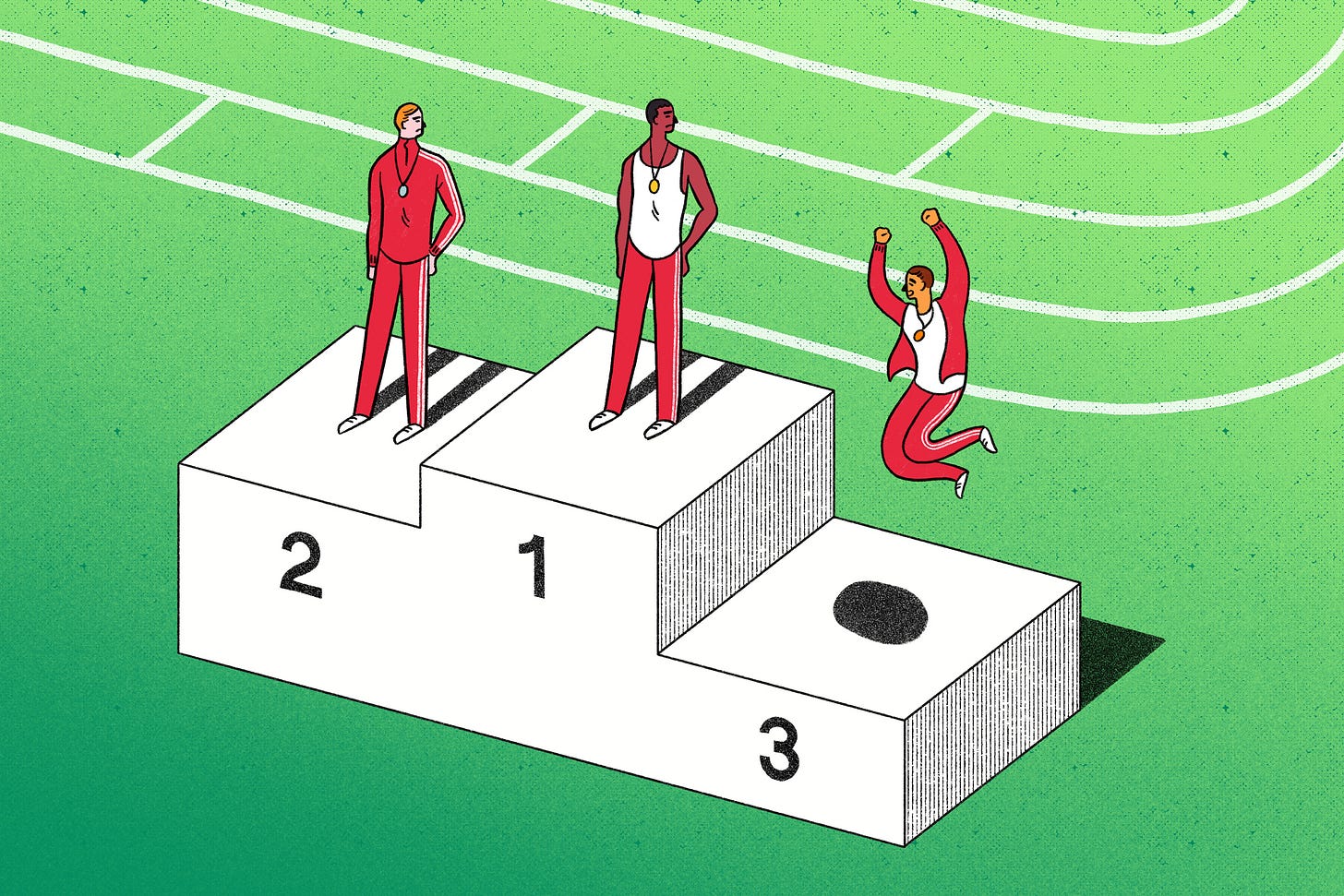The Case for Excellence
Arete -- another classic virtue
For work, I wound up at Time’s website today and read through their cover story, a reported essay called “The Case for Mediocrity.” It’s a good and well-meaning piece that ultimately deals with the concepts of ambition and desire that cause so much strife in our lives. Like many writers and thinkers before, the author suggests acceptance of a “good enough” life as a way of removing the stress of striving.
Society is based on hierarchies and most of us are necessarily in the lower-archy. One answer is to accept this. If you make enough money to pay your bills, have enough status at work that you’re not feeling beaten down and basically live an average life, just be grateful and move on. It’s fine to say that you never wanted a yacht or court-side basketball tickets in the first place. The “don't expect much, don’t be dissapointed” approach to life has a lot to recommend it, especially from the point of view of people who do get the white glove treatment and who worry that others want it, too.
This whole acceptance of mediocrity idea is really downright evil. Let’s unpack it, starting with the illustration Time used for its cover story:
We’re meant to think of the Olympics, of course. Bronze medalists are supposed to be sullen. They have failed! They are not the best. In a world where most Olympic sports do not have huge commercial potential, where even gold medalists wind up coaching kids or dressed up in furry costumes to perform in ice shows, it must really suck to be a bronze finalist! This is how competitive the world is — we know that an Olympic bronze medalist is one of the best in the world at whatever sport is being contested and that there are many flukes that separate bronze from silver or gold, or even the people not on the podium from the podium, or even the athletes who qualified for the Olympics from those who did not.
The world is so competitive that even people who never reach the podium try for excellence every day of their lives. To accept mediocrity isn’t a healthy thing, it’s a recipe for failure.
The classical Greeks had a concept called arete, which means excellence. When the gods give Achilles a choice between a long life of quiet obscurity or a short life full of heroic glory, he does not choose the easy path. Epic poems are not recited about the people who accept mediocrity as a substitute for glory. In The Old Man and the Sea, Santiago strives for excellence in everything he does, even as he wages an a hopeless battle against nature. Jay Gatsby doesn’t let go of his love for Daisy just because she’s married another man. Artists know that life isn’t about accepting substitutes. That’s the domain of economists, not creatives.
The ongoing search for excellence is also at the heart of the middlebrow sensibility because the true middlebrow believes that all of art, culture, literature, science and politics should be available to all people. Nobody is not good enough. Nothing is too refined to be understood or appreciated. This is at odds with a society that no longer seems to value striving and that even considers ambition suspect.
Be excellent to each other, friends, and seek excellence for yourself. Mediocrity is no gift. It’s not even something to tolerate.
